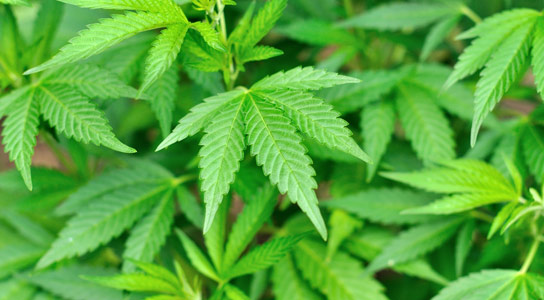
Frequent marijuana use can have a significant negative effect on the brains of teenagers and young adults, including cognitive decline, poor attention and memory, and decreased IQ.
Psychology and public health experts claim that regular cannabis use, which they consider once a week, is not safe and may result in addiction and significant neurocognitive damage to the brains of teenagers and young adults.
Frequent marijuana use can have a significant negative effect on the brains of teenagers and young adults, including cognitive decline, poor attention and memory, and decreased IQ, according to psychologists discussing public health implications of marijuana legalization at the American Psychological Association’s 122nd Annual Convention.
“It needs to be emphasized that regular cannabis use, which we consider once a week, is not safe and may result in addiction and neurocognitive damage, especially in youth,” said Krista Lisdahl, PhD, director of the brain imaging and neuropsychology lab at University of Wisconsin-Milwaukee.
Marijuana use is increasing, according to Lisdahl, who pointed to a 2012 study (PDF, 6.43MB) showing that 6.5 percent of high school seniors reported smoking marijuana daily, up from 2.4 percent in 1993. Additionally, 31 percent of young adults (ages 18 to 25) reported using marijuana in the last month. People who have become addicted to marijuana can lose an average of six IQ points by adulthood, according to Lisdahl, referring to a 2012 longitudinal study of 1,037 participants who were followed from birth to age 38.
Brain imaging studies of regular marijuana users have shown significant changes in their brain structure, particularly among adolescents, Lisdahl said. Abnormalities in the brain’s gray matter, which is associated with intelligence, have been found in 16- to 19-year-olds who increased their marijuana use in the past year, she said. These findings remained even after researchers controlled for major medical conditions, prenatal drug exposure, developmental delays, and learning disabilities, she added.
“When considering legalization, policymakers need to address ways to prevent easy access to marijuana and provide additional treatment funding for adolescent and young adult users,” she said. She also recommended that legislators consider regulating levels of tetrahydrocannabinol, or THC, the major psychoactive chemical in marijuana, in order to reduce potential neurocognitive effects.
Some legalized forms of marijuana have higher levels of THC than other strains, said Alan Budney, PhD, of Dartmouth College. THC is responsible for most of marijuana’s psychological effects. Some research has shown that frequent use of high-potency THC can increase the risk of acute and future problems with depression, anxiety, and psychosis. “Recent studies suggest that this relationship between marijuana and mental illness may be moderated by how often marijuana is used and the potency of the substance,” Budney said. “Unfortunately, much of what we know from earlier research is based on smoking marijuana with much lower doses of THC than are commonly used today.” Current treatments for marijuana addiction among adolescents, such as brief school interventions and outpatient counseling, can be helpful but more research is needed to develop more effective strategies and interventions, he added.
Additionally, people’s acceptance of legalized medical marijuana use appears to have an effect on adolescents’ perception of the drug’s risks, according to Bettina Friese, PhD, of the Pacific Institute for Research and Evaluation in California. She presented results from a 2013 study of 17,482 teenagers in Montana, which found marijuana use among teenagers was higher in counties where larger numbers of people voted to legalize medical marijuana in 2004. In addition, teens in counties with more votes for the legalization of medical marijuana perceived marijuana use to be less risky. The research findings suggest that a more accepting attitude toward medical marijuana may have a greater effect on marijuana use among teens than the actual number of medical marijuana licenses available, Friese said.
Session 3163: “Considering Cannabis? Potential Public Health Implications of Marijuana Legalization,” symposium, Saturday, August 9, 10-11:50 a.m. EDT, Room 150B, Walter E. Washington Convention Center, 801 Mount Vernon Pl., NW, Washington, D.C.
Presentations and contact information:
- “Neurocognitive Consequences of Chronic Marijuana Use: Preventing Early Onset Is Critical” (PDF, 352KB)
- “Clinical Epidemiology, Characteristics, Services, and Outcomes for Youth With Cannabis-Use Disorders” (PDF, 1.84MB)
- “Is Legalization of Medical Marijuana Related to Youths’ Marijuana Beliefs and Behaviors?”
Reference: “Persistent cannabis users show neuropsychological decline from childhood to midlife” by Madeline H. Meier, Avshalom Caspi, Antony Ambler, HonaLee Harrington, Renate Houts, Richard S. E. Keefe, Kay McDonald, Aimee Ward, Richie Poulton and Terrie E. Moffit, 27 August 2014, PNAS.
DOI: 10.1073/pnas.1206820109








Notice it’s just a ‘claim’, backed with NO scientific evidence, or PROOF?!!!
This isn’t surprising. Developing minds don’t actually expand or grow with constant highs. It could be argued Colbert or Sagen also never reached their full comedic/scientific potential due to that, controversially.
Also to Titoknows, that’s a very ironic thing. Most articles that state pot has some sort of sociopolitical benefit never source things or have scientific merit either. They exist to abuse people’s feelings and make ad revenue, whether they agree or disagree with it, and can be argued as a form of propaganda. This happens on both side of the debates, pro AND anti.
I came here from Yahoo, and there was an article about “Drug use in teens decreased” states in such an objective way, even though there was absolutely NO source other than a survey being taken under way. Not even those fake obviously bogus charts, just the author making things up unsourced. This article has the decent to cite quotes from people and link to other places that aren’t just jabs at another person’s opinion.
That’s the world we live in. It’s ironic. One moment we bash people to death and send they away and label supporters propaganda, and the next we use the media to end’s people’s fame and livelihood and call people against our ideals propaganda. Both people are right; It’s propaganda, evil propaganda that does not think about our health. No matter what, there is somebody pulling the strings in our system to profit off our health, but it will never be “Good health.”